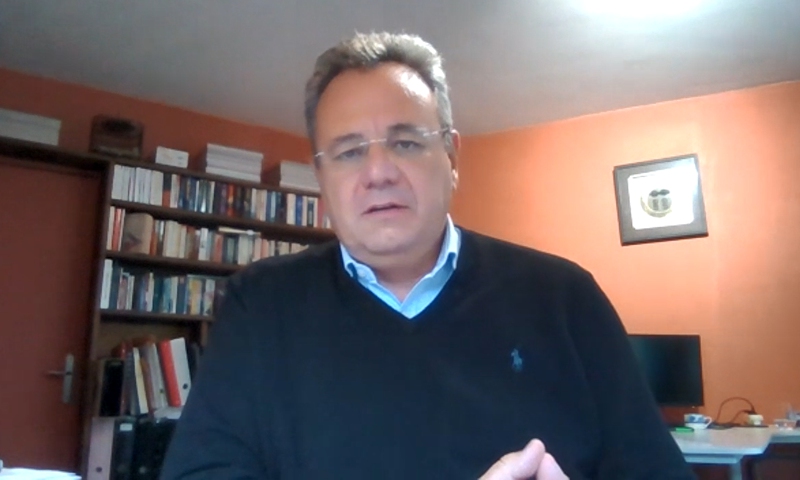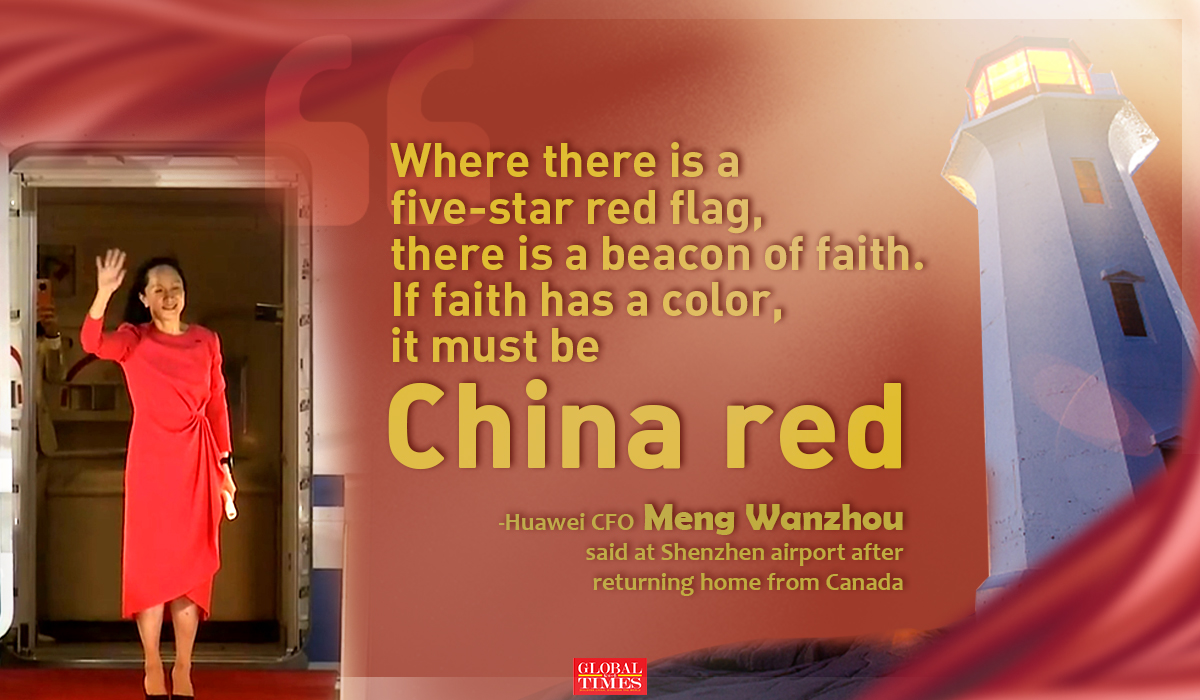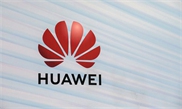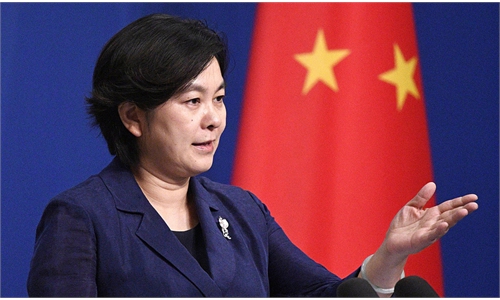Exclusive: China's victory on Huawei Meng Wanzhou's case to curb use of US long-arm jurisdiction: ex-Alstom exec

Frederic Pierucci Photo: GT
China's victory on the incident of Huawei's Meng Wanzhou could help slow down the process during which the US uses its legal system to wage an economic war against specific companies and inspire more countries to stand up in counteracting the long-arm jurisdiction of the US, former Alstom executive Frederic Pierucci told the Global Times in an exclusive interview on Friday.
"It's clear that the US has been using it [such tactic] for quite a long time," Pierucci said during a video interview with the Global Times, as the country often targets companies' strategic sectors by applying US laws onto foreign companies in order to achieve their economic goals.
The story of Pierucci has been widely described as the French version of Huawei's recent incident. As a co-author of a book titled Le Piège Américain (The American Trap), the French businessman who used to work at the French energy and transport giant Alstom, told a story about how the US uses its long-arm jurisdiction as a weapon to strike down competitors.
Though there were some similarities between the two cases, they ended differently. Pierucci was arrested in New York in 2013 on the charges of breaching US Foreign Corrupt Practices Act, which eventually led to a partial acquisition of Alstom by General Electric and jail time for him; while Meng was detained in Canada at the request of the US amid the US-launched trade war against China, but she later returned home without a guilty plea.
"One huge difference is that she had the full support of Huawei and the Chinese government as they understood rapidly that this was not a legal case as usual … it was part of an economic war," he said.
Pierucci pleaded guilty and spent two years in prison in the US after being arrested, while Alstom was fined $772 million in 2014, which forced the company to sell its assets, and the French businessman says its collapse was plotted by the US, which has been using a similar strategy against Huawei.
Meng reached a landmark deal with the US Justice Department on September 24 that allowed her to return to China, under which the senior executive of the Chinese company did not plead guilty.

Where there is a five-star red flag, there is a beacon of faith. If faith has a color, it must be China red." -Huawei CFO Meng Wanzhou said at Shenzhen airport after returning home from Canada Editor: Yang Ruoyu/GT Graphic: Xu Zihe/GT
I think the case of Huawei is going to slow down the extraterritorial reach of US laws, as it was the first time that a country really stood up in protecting its citizens from US jails and protecting its company in such way, Pierucci said.
An economic war between the US and China now reminds him of a trade war US waged against Japan decades ago, and the former executive of Alstom said it's important to take strong countermeasures to make the opponent "back off."
For instance, in Europe, in 1980s, the US started to attack French companies on antitrust issues. Therefore, they put a lot of fines on French and European companies on antitrust, Pierucci noted. At that time, Europe also reacted and put a lot of fines on US companies for antitrust as well. "And then, there was an equilibrium which created itself," he said, noting that a strong reaction is needed to prevent domestic companies from being "laminated" by the US.
Now it's more like "playing ping-pong" between China and the US, Pierucci said, as China has come up with stronger measures over the past few years to protect its economic interest while advancing the establishment of legal framework to counteract the US long-arm jurisdiction.
China's top legislature passed the law on export control in October 2020 and it took effect on December 1, 2020, which authorizes the Chinese government to take countermeasures against any country or region that abuses export-control measures and poses a threat to China's national security and interests.
Some experts said the legislation could be used to break up the US long-arm jurisdiction on a growing list of Chinese companies in an increasingly brutal face-off between China and the US.
Also, top lawmakers in China voted to pass the Anti-Foreign Sanctions Law in June, providing a comprehensive legal basis for blocking illegal foreign sanctions and preventing Chinese individuals and entities from suffering the damage resulting from such illegal sanctions.
While Pierucci thinks that the victory of the Chinese government on the incident of Meng will inspire more countries to fight the US long-arm jurisdiction, some countries have already started to react, for example the UK and France both implemented laws such as anti-corruption law and blocking statute law to protect their companies from extraterritorial reach of any foreign country.
Even though more countries are setting up certain kinds of laws to obstruct the US long-arm jurisdiction, the outcome depends on how those laws can be effectively applied, he said.




